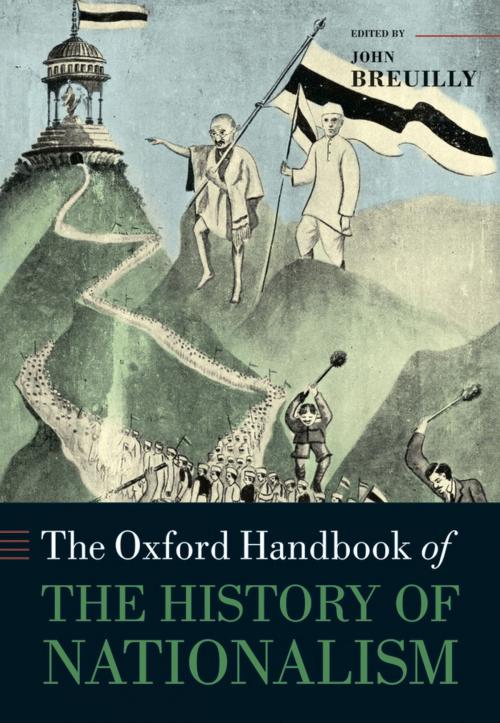The Oxford Handbook of the History of Nationalism
Nonfiction, History, Modern, 20th Century, Social & Cultural Studies, Political Science| Author: | ISBN: | 9780191644269 | |
| Publisher: | OUP Oxford | Publication: | March 7, 2013 |
| Imprint: | OUP Oxford | Language: | English |
| Author: | |
| ISBN: | 9780191644269 |
| Publisher: | OUP Oxford |
| Publication: | March 7, 2013 |
| Imprint: | OUP Oxford |
| Language: | English |
The Oxford Handbook of the History of Nationalism comprises thirty six essays by an international team of leading scholars, providing a global coverage of the history of nationalism in its different aspects - ideas, sentiments, and politics. Every chapter takes the form of an interpretative essay which, by a combination of thematic focus, comparison, and regional perspective, enables the reader to understand nationalism as a distinct and global historical subject. The book covers the emergence of nationalist ideas, sentiments, and cultural movements before the formation of a world of nation-states as well as nationalist politics before and after the era of the nation-state, with chapters covering Europe, the Middle East, North-East Asia, South Asia, Southeast Asia, sub-Saharan Africa, and the Americas. Essays on everday national sentiment and race ideas in fascism are accompanied by chapters on nationalist movements opposed to existing nation-states, nationalism and international relations, and the role of external intervention into nationalist disputes within states. In addition, the book looks at the major challenges to nationalism: international socialism, religion, pan-nationalism, and globalization, before a final section considering how historians have approached the subject of nationalism. Taken separately, the chapters in this Handbook will deepen understanding of nationalism in particular times and places; taken together they will enable the reader to see nationalism as a distinct subject in modern world history.
The Oxford Handbook of the History of Nationalism comprises thirty six essays by an international team of leading scholars, providing a global coverage of the history of nationalism in its different aspects - ideas, sentiments, and politics. Every chapter takes the form of an interpretative essay which, by a combination of thematic focus, comparison, and regional perspective, enables the reader to understand nationalism as a distinct and global historical subject. The book covers the emergence of nationalist ideas, sentiments, and cultural movements before the formation of a world of nation-states as well as nationalist politics before and after the era of the nation-state, with chapters covering Europe, the Middle East, North-East Asia, South Asia, Southeast Asia, sub-Saharan Africa, and the Americas. Essays on everday national sentiment and race ideas in fascism are accompanied by chapters on nationalist movements opposed to existing nation-states, nationalism and international relations, and the role of external intervention into nationalist disputes within states. In addition, the book looks at the major challenges to nationalism: international socialism, religion, pan-nationalism, and globalization, before a final section considering how historians have approached the subject of nationalism. Taken separately, the chapters in this Handbook will deepen understanding of nationalism in particular times and places; taken together they will enable the reader to see nationalism as a distinct subject in modern world history.















